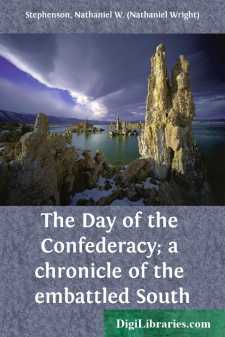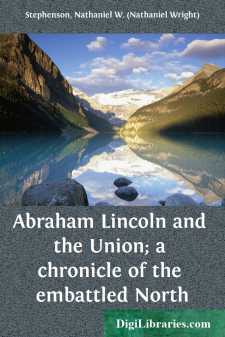Categories
- Antiques & Collectibles 13
- Architecture 36
- Art 48
- Bibles 22
- Biography & Autobiography 815
- Body, Mind & Spirit 144
- Business & Economics 28
- Children's Books 18
- Children's Fiction 14
- Computers 4
- Cooking 94
- Crafts & Hobbies 4
- Drama 346
- Education 58
- Family & Relationships 59
- Fiction 11835
- Games 19
- Gardening 17
- Health & Fitness 34
- History 1378
- House & Home 1
- Humor 147
- Juvenile Fiction 1873
- Juvenile Nonfiction 202
- Language Arts & Disciplines 89
- Law 16
- Literary Collections 686
- Literary Criticism 179
- Mathematics 13
- Medical 41
- Music 40
- Nature 180
- Non-Classifiable 1768
- Performing Arts 7
- Periodicals 1453
- Philosophy 65
- Photography 2
- Poetry 896
- Political Science 203
- Psychology 44
- Reference 154
- Religion 515
- Science 126
- Self-Help 85
- Social Science 83
- Sports & Recreation 34
- Study Aids 3
- Technology & Engineering 60
- Transportation 23
- Travel 463
- True Crime 29
Nathaniel W. (Nathaniel Wright) Stephenson
Nathaniel Wright Stephenson (1867–1935) was an American historian, biographer, and novelist. He is best known for his biographies of prominent American figures, including Abraham Lincoln, whose life he detailed in the book "Lincoln: An Account of His Personal Life and Public Services." Stephenson also wrote "The Day of the Confederacy," which explores the history of the Confederate States during the American Civil War. His work contributed to shaping the narrative of American history and politics during the early 20th century.
Author's Books:
Sort by:
I. THE CHILD OF THE FOREST Of first importance in the making of the American people is that great forest which once extended its mysterious labyrinth from tide-water to the prairies when the earliest colonists entered warily its sea-worn edges a portion of the European race came again under a spell it had forgotten centuries before, the spell of that untamed nature which created primitive man. All the...
more...
Chapter I. The Secession Movement The secession movement had three distinct stages. The first, beginning with the news that Lincoln was elected, closed with the news, sent broadcast over the South from Charleston, that Federal troops had taken possession of Fort Sumter on the night of the 28th of December. During this period the likelihood of secession was the topic of discussion in the lower South....
more...
PREFACE In spite of a lapse of sixty years, the historian who attempts to portray the era of Lincoln is still faced with almost impossible demands and still confronted with arbitrary points of view. It is out of the question, in a book so brief as this must necessarily be, to meet all these demands or to alter these points of view. Interests that are purely local, events that did not with certainty...
more...




